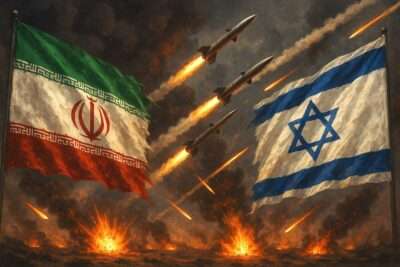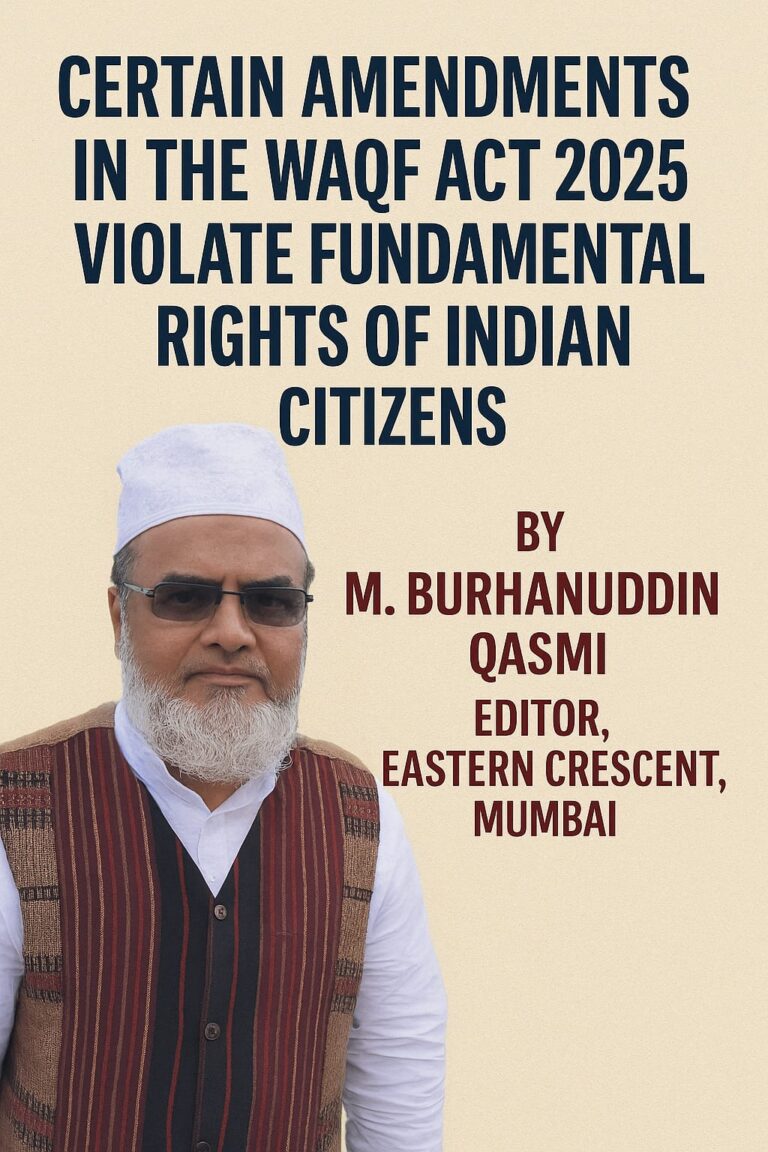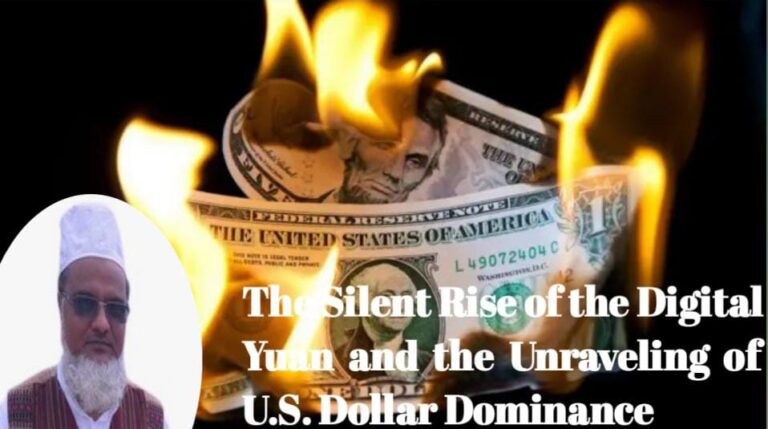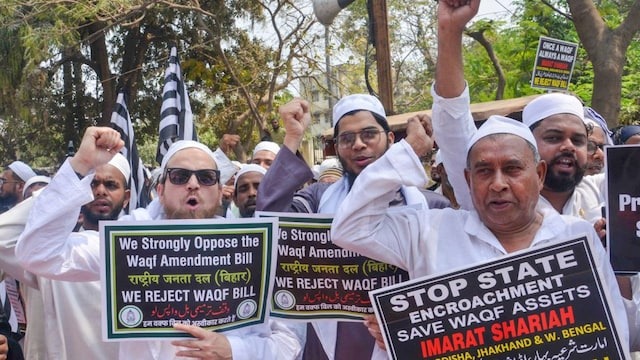
The Imarat-e Shariah is also a Trust of the Muslim Community, Like the Waqf!
The Imarat-e Shariah is also a Trust of the Muslim Community, Like the Waqf!
By: M. Burhanuddin Qasmi
Editor: Eastern Crescent, Mumbai
It has now become quite clear that the incident that took place today, on 28th Ramadhan 1446 AH, corresponding to 29th March 2025, at the headquarter of Imarat-e Shariah in Patna, Bihar is not a new conflict but rather a continuation of an ongoing dispute. This controversy has existed since the election of the current Amir-e-Shariat. Sources indicate that the matter escalated further when, during this Ramadhan, the “Amir Sahib” dismissed another key official from his opposition group, which transformed an already simmering issue into a raging fire.
This time, the opposing group managed to secure assistance from the Bihar Police and entered the head office of Imarat-e Shariah in Patna today, attempting to assert control. This situation is undoubtedly concerning and alarming for Indian Muslims. Imarat-e Shariah must resolve its internal leadership dispute independently by involving senior and experienced individuals. As reported, the entry of the rival group into the headquarters with police support, without any court order, seems an unfair and harmful act against the organization.
The opposition group also comprises respected scholars and responsible individuals from within Imarat-e Shariah itself. They must understand that resorting to force and misusing police support to assert their claim is not justified. The government that stands by their side today may oppose them tomorrow, and in the end, the poor Muslim community in Bihar will suffer the most.
The dismissal of experienced and dedicated personnel, who have long served the organization, also requires careful reflection. Blindly supporting or opposing any one group is neither true journalism nor in the best interest of the community. Analysts are expected to act impartially and contribute towards a peaceful resolution of the issue.
Both parties must remember that these institutions are community trusts — they are not personal properties. The individuals involved are caretakers, not owners. The Muslim community expects to see growth and progress in these institutions, not power struggles. Anyone responsible for damaging or disgracing these institutions will be held accountable — not only before the community but also before Allah.
Linking the internal power struggle within Imarat-e Shariah to the Muslim Personal Law Board, the Protest Against the Waqf Amendment Bill 2024, or any particular political party in Bihar is also unjustified. Imarat-e Shariah is a member of the Muslim Personal Law Board, and the opposition to the Waqf Amendment Bill is a joint movement that includes Jamiat Ulama-e Hind, Jamaat-e Islami Hind, and other organizations alongside Imarat-e Shariah. Even those who entered the Imarat headquarters today with police assistance are part of this movement. Therefore, connecting the current “Amir-e Shariat’s” protest against the Waqf Amendment Bill or boycott of Bihar CM’s Iftar Party to this incident is not realistic. External involvement is not always the root cause of every internal dispute, and blaming external forces alone often leads to avoiding the core issue.
Imarat-e Shariah is a prominent and esteemed institution of Indian Muslims, built through the resources and hard work of the community’s elders. Safeguarding and preserving it is the collective responsibility of all. The conflicting groups must resolve their disputes, as this is in the best interest of both the community and the individuals involved. Before it’s too late, we appeal to all concerned to return to the path of unity, work together with sincerity, and collectively serve the community. The unity of scholars is the unity of the nation, and the success of all lies in mutual cooperation and sincere efforts for the greater good of the country and the community.
You May Also Like
 Editorial
EditorialThank You, Bihar!
Thank You, Bihar! By: M. Burhanuddin Qasmi Editor: Eastern Crescent, Mumbai What an unforgettable...
 Editorial
EditorialThe World Must Be Alarmed!
The World Must Be Alarmed! By: M. Burhanuddin Qasmi The incident yesterday in the...
 Editorial
EditorialThe Misbegotten Lexicon
The Misbegotten Lexicon By: M. Burhanuddin Qasmi Editor: Eastern Crescent Behold, the lamentable chronicle...
 Editorial
EditorialCertain Amendments in the Waqf Act 2025 Violate Fundamental Rights of Indian Citizens
Certain Amendments in the Waqf Act 2025 Violate Fundamental Rights of Indian Citizens By:...
 Editorial
EditorialThe Silent Rise of the Digital Yuan and the Unraveling of U.S. Dollar Dominance
The Silent Rise of the Digital Yuan and the Unraveling of U.S. Dollar Dominance...
 Editorial
EditorialWaqf Amendment Bill 2025: A Constitutional Tragedy, But AIMPLB Did Not Disappoint the Community
Waqf Amendment Bill 2025: A Constitutional Tragedy, But AIMPLB Did Not Disappoint the Community...

Comments (0)
Leave a Comment